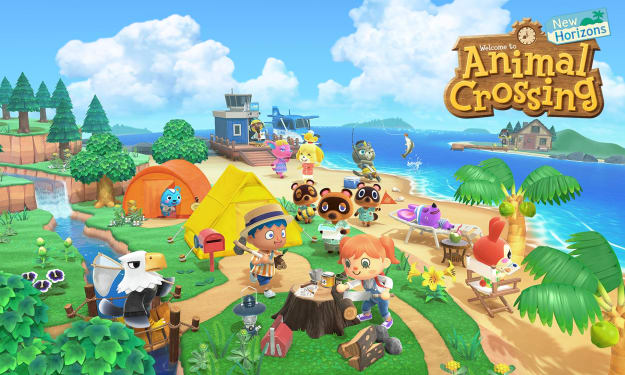The DM's Guide to 1's and 20's
The crits and fails of Dungeons and Dragons

The game Dungeons and Dragons (DnD) is popular among fans of many genres. The game has been referenced in television shows from Gravity Falls or Stranger Things. I am an fan of DnD and play the game in my free time. The creativity the game allows is endless since it gives the players options on what race and class to play. The main point of DnD is being with friends and following the Dungeon Master's (DM) story. The fate of the players is left to the dice, but the most used and popular dice is the twenty-sided dice.
The twenty-sided dice allows players to see if they succeed or fail at a task. The higher the roll the better the outcome. It is common knowledge that the highest number you can roll on a twenty-sided dice is the number twenty while the lowest is one. Many players assume that rolling is an automatic success, but a one is an automatic failure. However, I encourage DM's not to take this approach because the higher the role, the higher amount of success.
Critical's Do Not Mean Success
Imagine a player talking to a king. The king is arrogant, spoiled, and rude. He does not listen to what the players are saying and keeps telling the players that he does not care if ghouls are attacking the villagers, it is not his problem since he is not getting attacked. This causes the player, Thomas, that the only way to help the villagers is to get a new king, who unfortunately is still very young, healthy, and surrounded by guards. Thomas comes up with a brilliant plan slowly he looks up at the king, his eye narrowing and in a soft yet convincing voice says, "Go kill yourself." Everyone likes at the player wide-eyed, did he just do that? The DM sighs, "Fine roll persuasion." Thomas roles and gets the best role in the game a natural twenty. The players roar with laughter and the DM groans knowing that the big evil was defeated.
The natural twenty has ruined games for many DMs. Players are god when they role that stupid twenty, but wait the DM has an even bigger power called, "I don't care about what you want, I say no." Yes, the power of the word "No" is immense and never-ending. Now Thomas' plan on having the king commit sudoku will no longer work. The player has to come up with a different method.
The previous example is over-exaggerated but the natural twenty is often mistaken as an automatic success when in acutallty it means you have a higher chance of success. The response I would give to the previous example is:
The king raises his eyebrows at the party as the guards take a step foward. His commanding hand raises to tell the guards to stop, "What do you mean by kill myself? Are you saying that my people will only be free when I am dead?" He scoffs, "Maybe the people should learn to defend theirselves."
Natural One's Do Not Mean Failure
The natural one can be a fun tool. There is nothing funnier when a player tries to do something but fails however if we are not going to have critical twenties mean automatic successes then it is unfair to the player to have natural ones be automatic fails. It makes sense when this rule happens. A player can roll a one on an athletic chance which means they fail and it makes sense for that. However for certain roles, it shouldn't happen. I highly doubt a person can mess up brushing their teeth after years of doing it or not see anything during an ambush. Perhaps something else catches the player's attention instead. Instead of the charging orcs they saw a bunny, who wouldn't be distracted by a cute bunny.
Overall
Overall, this is the DM's and players game. The biggest goal should be that each player is having fun. Before implementing these rules talk with the group and see what they like or what they want in the game. Maybe players want the automatic success. Remember, Dungeons and Dragons is a game for teams. This is no I in the name or in team.
About the Creator
Tiffany Wells
Hi! I am currently in college and majoring in writing! Writing is my passion and I hope to be able to teach it one day!






Comments
There are no comments for this story
Be the first to respond and start the conversation.